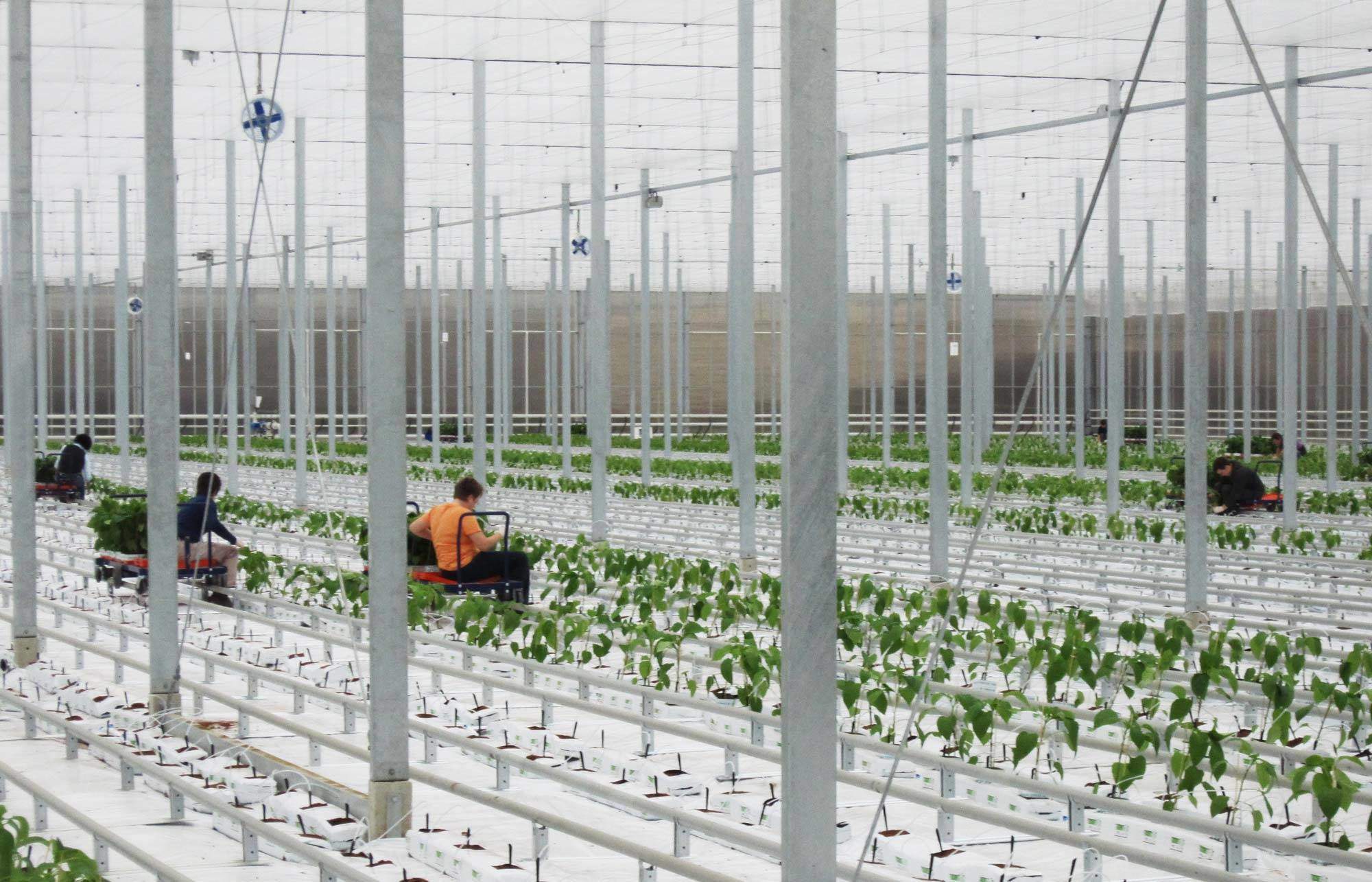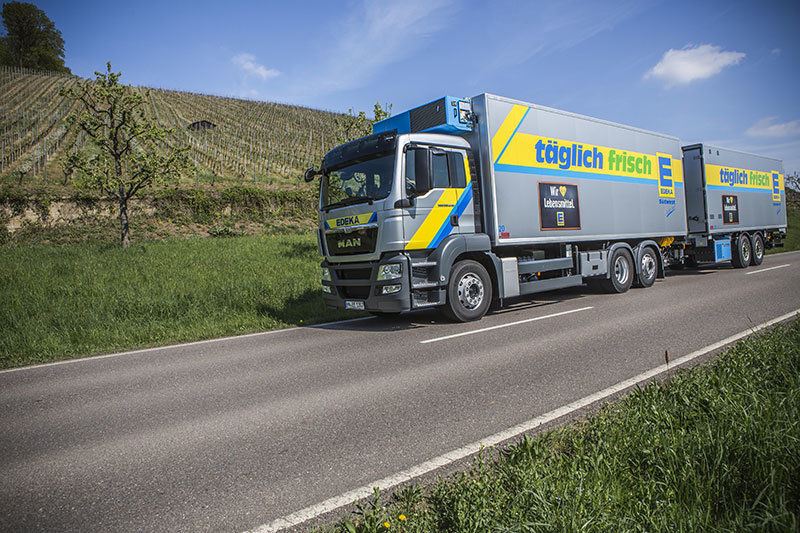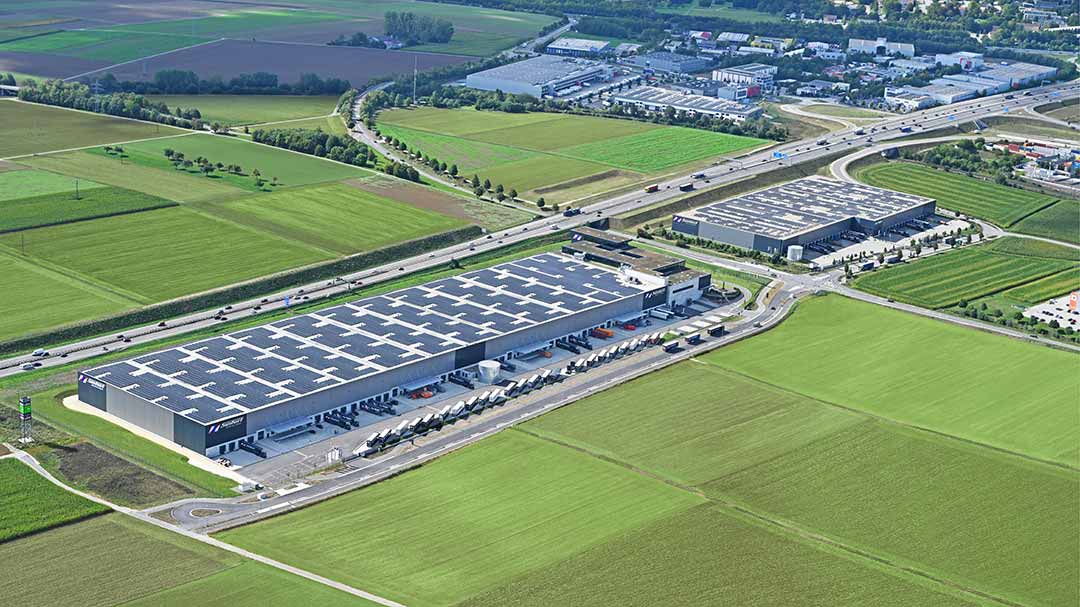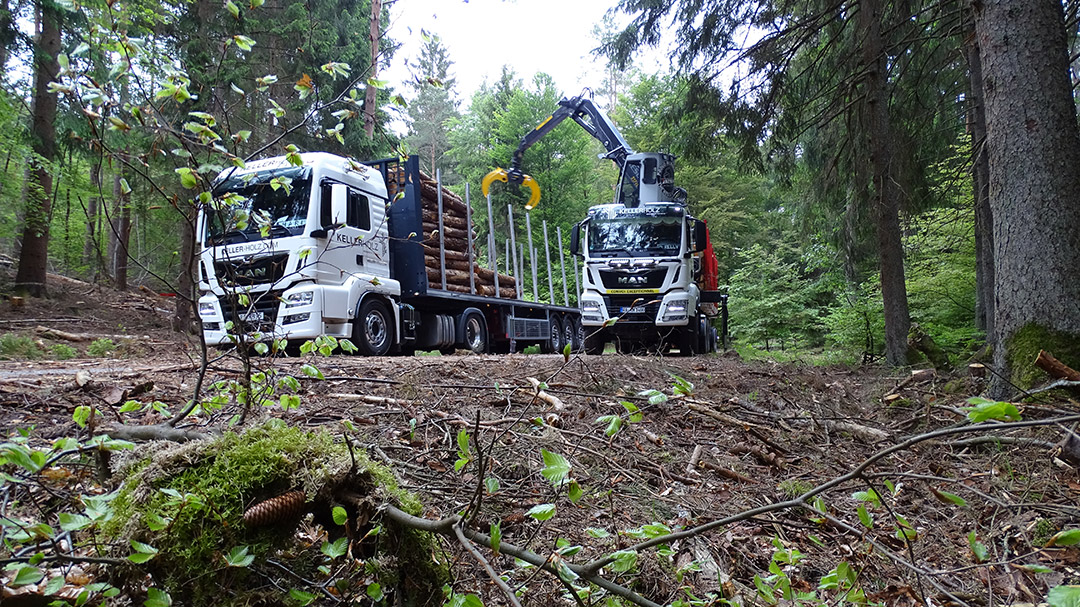Text: Doris Hülsbömer
Photos: Reichenau-Gemüse – Rainer Maria Hohnhaus, Edeka Südwest
Good and trusting working relationships with your partners enable you to deliver high quality and also to continually follow new avenues. As the largest alliance in the German retail sector, Edeka stands for an active partnership between retail and wholesale.
Where do the peppers that end up in our supermarket trolleys actually come from? Israel, the south of France, or perhaps Spain? Many are indeed grown in hot countries. But far from every plant of the Solanum genus sold in Germany will have travelled such a long distance: for some years, large quantities of peppers have been cultivated in the region of Lake Constance. To be precise, 3.1 million units per year. This is because the mild climate in the southernmost vegetable-growing region in Germany is enough for high-yield cultivation.
In 2009, when the Edeka Southwest regional company approached Reichenau-Gemüse eG with the idea of growing peppers on the island of Reichenau, five local horticultural businesses decided to join forces and constructed a large greenhouse in the Hegau area by Lake Constance. “Without this bundling of capacities, there would be no pepper cultivation here,” says Stefanie Glönkler, junior manager and specialist at the Glönkler horticultural company. “Previously, the vegetable growers on Reichenau were lone operators.“
Almost all of the peppers harvested from March to November in the Hegau growing region on Reichenau are sold to the Edeka Southwest regional company. Under the brand “Unsere Heimat – echt & gut” (Our home – authentic & good), these vegetables catch the customers’ eye as soon as they enter their local store. In woven baskets and with their own special stands, they are explicitly displayed as a regional product. Wholesalers assist individual stores by providing ideas and materials regarding product presentation. This cooperation is part of a larger whole: “We work very intensively with the merchants, in keeping with the cooperative principle that is behind the Edeka alliance,” says Martin Lampe, operations manager at Edeka Southwest in Ellhofen. The merchants contribute their own equity and hold a stake in the cooperative.

»We work very intensively with the merchants, in keeping with the cooperative principle that is behind the Edeka alliance.«
Martin Lampe, operations manager at Edeka Southwest

Volume bundling in purchasing
The purchasing alliance was founded as far back as 1888. But it was more than 20 years later, in 1911, that the merchants decided to operate their businesses under the shared Edeka brand. The close association was, first of all, based on financial considerations: the merchants hoped to get better prices by bundling their purchasing volumes. “Of course, volume bundling in purchasing is still one of the central functions of the wholesale business,” says Lampe. Accordingly, a large part of the merchandise is ordered through centralised purchasing. The merchants are not obligated, however, to purchase at a specific scale from their regional company. “They are free to operate as independent merchants in their assortment policies,” says Lampe.
The shelves of an average-sized supermarket hold between 20,000 and 25,000 products. Between 18,000 and 20,000 of them are handled for Edeka Southwest at the logistics centre in Ellhofen, while other products are sourced from third-party vendors or in-house. Because the regional merchants view their customers as partners, they also purchase goods from local agricultural enterprises. “Especially here in the Swabian-Franconian wine-growing region, many outlets order their wine from local wineries,” says Lampe of the autonomy enjoyed by the tradesmen. “We have no intention of centrally controlling this deep-rooted regionalism.“
Producers encouraged to cooperate as well
A number of food producers are also sounding out the possibilities of cooperation, although rather tentatively still. Here, costs can be saved by combining shipments. But how are these savings handled? This question has been taken up by Prof. Dr. Franz Vallée of Münster University of Applied Sciences. “Current forms of cooperation are suffering from the fact that there is still no model for a fair distribution of both savings and the input from partners,” says Vallée. At his university department, such a model is under development, covering several stages and combined with checklists. One producer sends only one palette while another delivers 30 – how can quantities, in their proportions, be meaningfully broken down for the partners involved? “A prerequisite for this is total transparency and the full confidence of all group members between themselves,” says Vallée. Forming an alliance is worth the effort, explains the scientist: if food retailing bundles its shipments, costs are reduced because routes can be optimally planned. Some producers have already recognised this and have teamed up. For example, the three frozen food manufacturers Roncadin, Coppenrath & Wiese and Appetito have had a cooperation of this kind in place since 2004.
Today, the concepts of partnership and cooperation are hot topics in the working groups of the Edeka regional companies. There, merchants, wholesalers and producers are discussing, among other things, the items entering the product range, how to solve staff shortages, or how IT can best reflect the processes in wholesale and retail. “IT is always an issue,” explains Lampe. “It’s often still the case that the electronic connection ends at the supermarket loading ramp. This is going to change in the future.“
Optimising processes
“Often there are queues at the ramp. However, some logistics service providers have concluded agreements according to which the driver is not left alone in the event of a delay in delivery,” explains Carsten Knauer, Head of the Logistics/SCM Section and a consultant for specialist groups at the Bundesverband Materialwirtschaft, Einkauf und Logistik e.V. association (national association for materials management, purchasing and logistics; BME). A longer waiting time is therefore not necessary. Knauer heads the BME’s freight purchasing working group. The BME specialist group is looking for ways to more efficiently mesh processes in the transport chain so that both hauliers and customers can save costs. Knauer refers to the drafting of contracts: “Logistics service providers should coordinate intensively with the companies that supply them.”
Throughout, trust should be the foundation for any cooperation: “I also have to disclose certain data. This entails a basis on which everyone feels secure,” says Prof. Vallée. If producers team up, they can specify a shared dispatching service provided by a third party, for example. “Dispatching doesn’t necessarily have to be at the producer’s,” explains the logistics expert. This also relieves the parties with regard to the sensitive issue of data protection. However, what may be difficult here is that many producers then no longer need their own dispatchers. Such aspects can only be clarified in the course of joint and open discussions.
Openly addressing conflicting goals
The many working groups always include members from retail and wholesale, meaning that discussions can sometimes get a little contentious. Ultimately, everyone has their own view of the market, the region and its customers. Nevertheless, as Lampe points out: “Only a measure of friction can bring the right result.” Peppers from the Hegau growing region on Reichenau in Lake Constance are appealing for customers. But at what level should the price be set? What quantities can be sold? The wholesale trade is responsible for the economic performance of the group. “These conflicting goals are the subject of intensive discussions,” says the operations manager, describing how the parties deal with each other.
Alongside the product range and operational management, plans for the future are also being discussed. Here, both sides agree that the current approach, with its focus on regionality and freshness, is the right one. Nevertheless, there are a number of challenges: “Regional, organic, vegan – we want to improve in these areas,” stresses Lampe. In addition, customers should receive more support during their daily shopping and with food-related issues. With this in mind, wholesalers are offering training for supermarket employees so that they can provide nutritional services as well. They can then assist customers in the store by providing them with information and advice about a balanced diet, exercise and relaxation. More than 1,000 employees have already seized this opportunity at Edeka Southwest.

On the Reichenau, the vegetable gardeners turn their peppers by hand every 14 to 18 days, thus ensuring uniform ripening.
Ensuring a range of fresh products
Edeka Southwest has outfitted 50 of its 200-strong fleet of trucks with telematics from idem telematics. The system monitors the temperature in the trucks used for refrigerated transports. Martin Lampe and his colleagues can call up this data online. “Previously, we only had temperature sensors, so we didn’t have permanent access to the necessary information,” says the operations manager. This has changed with the new system: if the temperature in the truck drops to within the critical range, the fleet dispatcher receives an alert on their smartphone. In four years’ time, if all goes to plan, every Edeka Southwest vehicle will be equipped with this innovative technology.
Another telematics application helped to significantly reduce fuel consumption across the truck fleet. This solution assesses the driver’s driving style – how they accelerate, brake or change gears – and awards a score between 0 and 10. A 10 indicates optimal driving behaviour. “We started four years ago with an average score of 6.5. We’re now at 9.3,” pronounces the operations manager proudly. The next stage envisaged by Lampe is to link the two telematics systems with the aim of bundling all the information in a single system. Here, an important aspect will be the connection of the telematics system to the loading ramp: “If the merchant has adjusted their own system accordingly, they can automatically transfer this data into their merchandise management system,” says Lampe of the planned IT network. Importantly, the data is scanned into the IT system even before shipment to the stores, thus getting directly into the database of the respective Edeka store. This means that both wholesale and the local Edeka outlets can immediately work with the same data pool. For the peppers from Reichenau, this means that in the near future, they can be accepted on the loading ramp without the need for manual entries made by employees.
Nevertheless, manual work is unlikely to disappear completely – at least on the island of Reichenau. There, the vegetable farmers turn their peppers by hand every 14 to 18 days, thus ensuring uniform ripening. After the harvest, each pepper is individually placed in shipping crates. Horticulture graduate Stefanie Glönkler, who is familiar with the modern IT methods in her sector, does not anticipate any fully automated cultivation of vegetables. Ultimately, one important factor is beyond technical control: the weather. “Despite all the technology, we horticulturists are extremely dependent on nature.“







